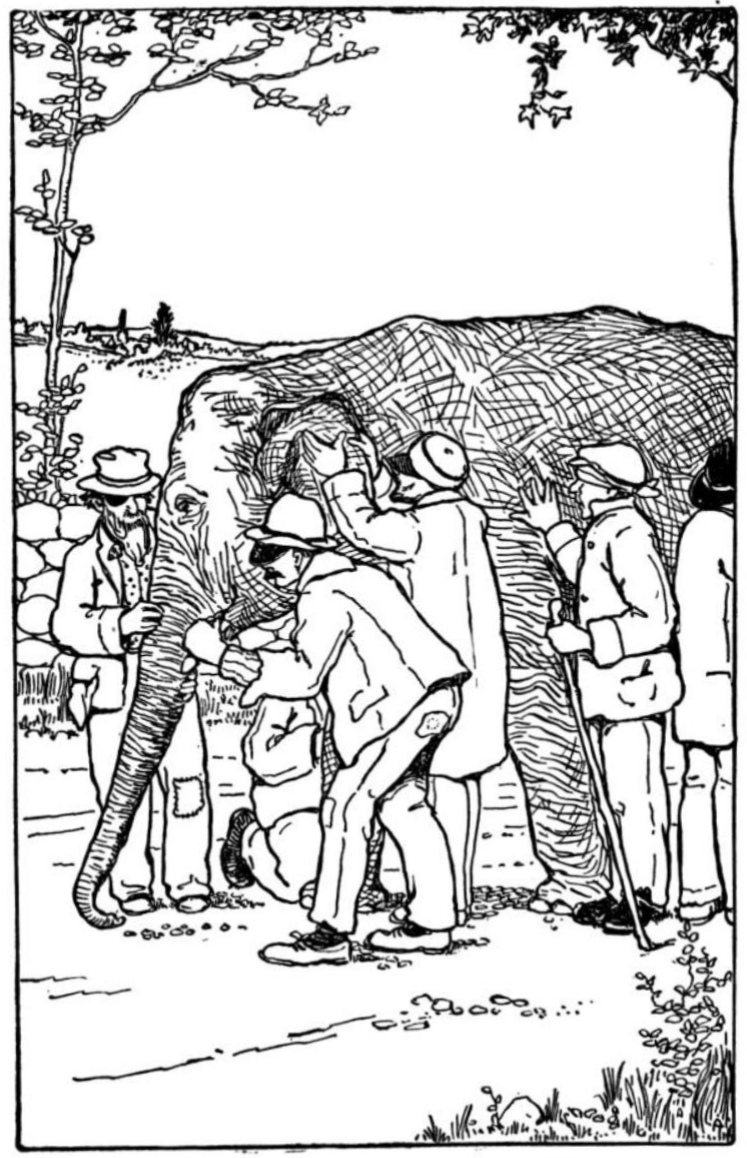Collective Intelligence
And though each was partly in the wrong, all were in the right. The whole is wiser than the sum of its parts (when parts feel free and dear to speak their minds while listening to the others). Monday Notes is a manifistation of the group's collective intelligence: What the group knows as a whole is something that is different than the sum of the parts.
The parable of the blind men and an elephant originated in the ancient Indian subcontinent, from where it has been widely diffused. However the meaning of the popular proverb differs in other countries. It is a story of a group of blind men, who have never come across an elephant before and who learn and conceptualize what the elephant is like by touching it. Each blind man feels a different part of the elephant's body, but only one part, such as the side or the tusk. They then describe the elephant based on their limited experience and their descriptions of the elephant are different from each other. In some versions, they come to suspect that the other person is dishonest and they come to blows. The moral of the parable is that humans have a tendency to claim absolute truth based on their limited, subjective experience as they ignore other people's limited, subjective experiences which may be equally true.
[Source: https://en.wikipedia.org/wiki/Blind_men_and_an_elephant]
THE BLIND MEN AND THE ELEPHANT.
A HINDOO FABLE.
I.
IT was six men of Indostan
To learning much inclined,
Who went to see the Elephant
(Though all of them were blind),
That each by observation
Might satisfy his mind.
II.
The First approached the Elephant,
And happening to fall
Against his broad and sturdy side,
At once began to bawl:
"God bless me!—but the Elephant
Is very like a wall!"
III.
The Second, feeling of the tusk,
Cried: "Ho!—what have we here
So very round and smooth and sharp?
To me 't is mighty clear
This wonder of an Elephant
Is very like a spear!"
IV.
The Third approached the animal,
And happening to take
The squirming trunk within his hands,
Thus boldly up and spake:
"I see," quoth he, "the Elephant
Is very like a snake!"
V.
The Fourth reached out his eager hand,
And felt about the knee.
"What most this wondrous beast is like
Is mighty plain," quoth he;
"'T is clear enough the Elephant
Is very like a tree!"
VI.
The Fifth, who chanced to touch the ear,
Said: "E'en the blindest man
Can tell what this resembles most;
Deny the fact who can,
This marvel of an Elephant
Is very like a fan!"
VII.
The Sixth no sooner had begun
About the beast to grope,
Than, seizing on the swinging tail
That fell within his scope,
"I see," quoth he, "the Elephant
Is very like a rope!"
VIII.
And so these men of Indostan
Disputed loud and long,
Each in his own opinion
Exceeding stiff and strong,
Though each was partly in the right,
And all were in the wrong!
MORAL.
So, oft in theologic wars
The disputants, I ween,
Rail on in utter ignorance
Of what each other mean,
And prate about an Elephant
Not one of them has seen!
[Source: https://en.wikisource.org/wiki/The_poems_of_John_Godfrey_Saxe/The_Blind_Men_and_the_Elephan]
